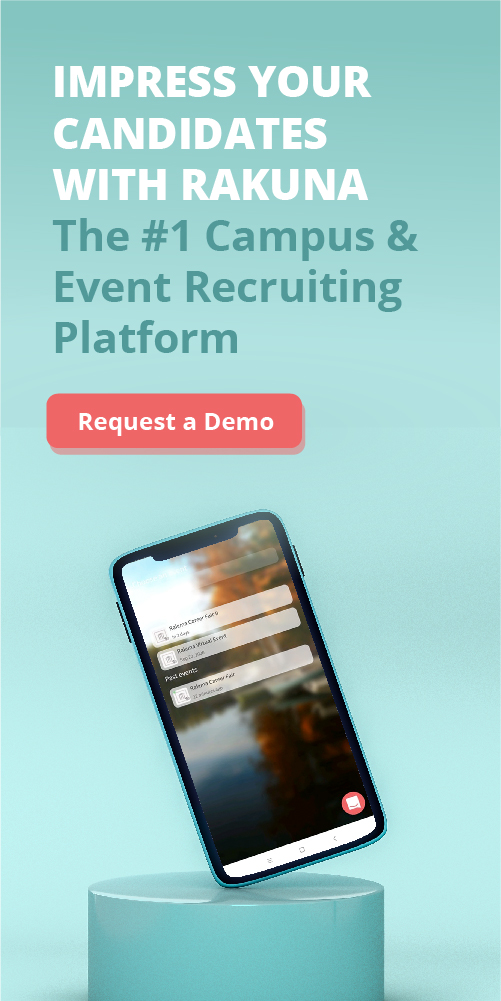Ask any top recruiter today what truly sets their company apart from competitors, and they’ll likely say: candidate experience.
Yet one of the simplest ways to elevate that experience—timely, thoughtful follow-up—is often the most neglected. And the consequences are bigger than you think.
According to LinkedIn, 83% of candidates say a negative interview experience can change their mind about a role or company they once liked. On the flip side, 87% say a positive experience can make them rethink a previously doubtful employer.
In short: how you treat people during hiring shapes how the world sees your brand.
The Follow-Up Problem Nobody Talks About

Most job candidates understand the power of a post-interview follow-up. Ironically, it’s the employers who often fail to reciprocate. Busy hiring managers get tunnel vision on the “perfect” candidate, forgetting there are real humans waiting on the other side of that silence.
And those humans? They remember.
In fact, research by CareerArc found that 72% of job seekers who had a bad experience shared it online or with someone directly. Even more troubling, only 46% of employers bother to follow up with rejected candidates at all.
Ignoring candidates after interviews isn’t just impolite—it’s brand sabotage.
Building Real Relationships (Even With Rejected Candidates)

Most companies focus solely on attracting qualified candidates. But savvy employers recognize the long game: even candidates you reject today could refer others, or return as applicants tomorrow.
That’s why it pays to take a “concierge-style” approach: assign one point of contact to each candidate, and make communication personalized. This approach has been proven to increase offer acceptance and candidate advocacy.
The New South Wales Public Service Commission in Australia recommends a structured rejection feedback method that includes:
-
Identifying the candidate’s strengths
-
Explaining where they could improve or what they may have lacked for the role
-
Thanking them sincerely for their interest and time
A simple, respectful rejection email that incorporates these elements can turn disappointment into admiration. Even if it’s a no for now, you’re leaving the door open for future engagement—and protecting your brand’s reputation in the process.
What Are the Most Effective Ways to Enhance the Candidate Experience?

1. Train Your Team Like They’re in Customer Service
A great candidate experience starts with a knowledgeable, aligned team:
-
Train your recruiters regularly on the latest industry trends, diversity hiring strategies, and candidate engagement tactics.
-
Embed follow-up and communication best practices into your team’s daily habits—not just something that happens post-interview.
-
Assign a dedicated recruiter or “candidate concierge” to guide applicants through the process. Personalized communication reduces drop-off and boosts engagement.
-
Share real candidate insights and market data (like LinkedIn’s Talent Trends report showing 83% of candidates expect post-interview feedback) to align your team around what candidates actually want.
-
Foster a culture of continuous learning by encouraging recruiters to review feedback and refine their touchpoints accordingly.
🧠 Pro Tip: Create a shared knowledge base where recruiters log successful tactics or candidate praise to build consistency across the team.
2. Automate Follow-Ups—But Make Them Personal
Silence after an interview kills more deals than bad offers. Don’t let that happen on your watch:
-
Automate follow-ups using tools like recruiting CRMs to ensure no candidate slips through the cracks.
-
Set internal SLAs (service-level agreements) for follow-up timelines (e.g., within 48 hours after interviews or events).
-
Customize each message—mention specifics from the conversation or something personal the candidate shared.
-
Track candidate replies and open rates to refine your messaging and timing.
-
Measure impact regularly: Monitor reply rates and candidate satisfaction surveys to optimize your approach.
💡 Need a scalable solution? Consider using a recruiting CRM like Rakuna’s Recruiting CRM to streamline communication and measure engagement at scale.
3. Record Every Interaction and Observation
Note-taking isn’t just admin work—it’s relationship memory:
-
Use a standardized template to record key info like candidate goals, skills, and interview impressions.
-
Update your notes right after interviews or events to ensure accuracy while it’s still fresh.
-
Capture soft skills and behavioral observations that might not show up on the resume.
-
Make your notes collaborative: Share across teams and with hiring managers to inform final decisions.
-
Continuously refine your process based on recruiter and candidate feedback—what’s working, what’s not?
📂 Try this: Add a “Candidate Gold Nugget” section to each note—highlighting one unique trait that stood out.
4. Tailor Communication to the Candidate
No one wants a “Dear Applicant” email. Personalized communication is the new baseline:
-
Segment candidates based on job stage, interests, or communication preferences.
-
Reference past interactions in emails—mention the event they attended, their goals, or even a shared interest.
-
Use tone and language that matches their style (formal for corporate roles, relaxed for creative positions).
-
Tap into CRM insights to personalize at scale—track engagement data to adjust content accordingly.
-
Invite two-way conversations. Don’t just talk at them—ask for questions, feedback, or preferences.
✍️ Want candidates to engage? End your emails with: “What questions do you have for us before the next step?”
5. Stay Visible Between Interviews
The candidate journey doesn’t end after the first message—it’s a long game:
-
Stay connected via LinkedIn or other professional platforms to nurture passive candidates over time.
-
Share industry content, job updates, and team spotlights to give candidates more reasons to stay engaged.
-
Create opt-in groups or talent communities so candidates can network, upskill, and hear from you even when roles aren’t open.
-
Provide access to learning resources, AMAs, or webinars to support their career growth and build loyalty.
-
Track digital engagement metrics (opens, clicks, unsubscribes) and test content formats to see what resonates.
📱 Remember: Candidates are evaluating you as much as you’re evaluating them. Your social and digital footprint matters.
Final Takeaway: Your Reputation Rests on Respect
In the end, candidate experience is just modern-day word of mouth. Every email, call, or missed update tells a story about your company.
The most respected employers today aren’t the ones with the biggest budgets—but the ones who treat every candidate like they matter. Because they do.

Team Rakuna
The Rakuna Team comprises a diverse group of professionals hailing from various corners of the world.
With a passion to enable organizations to hire their next waves of talents, we are dedicated to help organizations stay updated on important recruiting technology and industry best practices.

